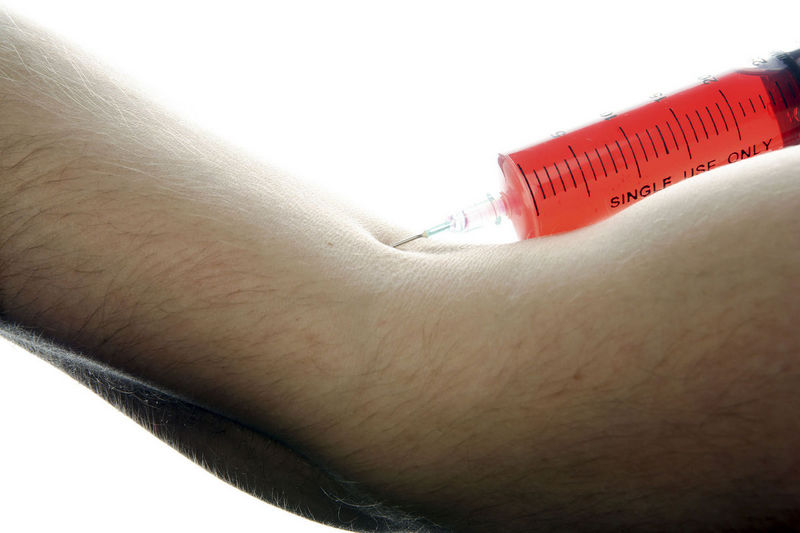
MONDAY, Feb. 16, 2015 (HealthDay News) — Menopause-related hot flashes and night sweats aren’t a short-term problem. More than half of women experience these unpleasant change-of-life symptoms for seven years or more, a new study finds.
“Women should not be surprised if their hot flashes last a number of years,” said lead researcher Nancy Avis, a professor of social sciences and health policy at Wake Forest School of Medicine in Winston-Salem, N.C.
Four out of five women experience hot flashes and night sweats in the years before their periods cease, leaving some with almost 12 years of unpleasant symptoms, the study found. And women who could pinpoint their final period reported symptoms persisted for an average of 4.5 years afterward.
The findings, published online Feb. 16 in JAMA Internal Medicine, suggest a need for “more research on safe and effective ways to relieve these symptoms,” Avis said. Menopausal symptoms affect quality of life, disrupt sleep and result in worse physical health, she and her colleagues noted.
Menopause — which is confirmed when a woman’s periods have ceased for 12 consecutive months — occurs most often between ages 45 and 55, according to the North American Menopause Society. The symptoms women experience are related to lower levels of estrogen and other hormones. Common among these symptoms are hot flashes — quick feelings of heat sometimes accompanied by sweating.
One option — hormone replacement therapy — is avoided by many women because it has been linked to an increased risk of breast cancer, Avis said. “Also, women who have had breast cancer cannot take hormone replacement therapy,” she noted.
Last week, researchers reported in The Lancet that taking hormone replacement therapy for even less than five years after menopause increased a woman’s risk of ovarian cancer by about 40 percent.
But alternatives to hormone replacement therapy exist, Avis and another expert said.
“Talk to your doctor about your symptoms if they are interfering with your quality of life. There are effective treatments available,” said Dr. JoAnn Manson, chief of the division of preventive medicine at Brigham and Women’s Hospital in Boston and co-author of an accompanying journal editorial.
“Some women may need multiple types of treatment for their hot flashes,” Manson said.
Low doses of oral contraceptives can relieve hot flashes and night sweats for women whose symptoms start before they go through menopause, she said.
Once they go through menopause, if they want to avoid hormone replacement therapy for an extended period, they “may then want to switch to a non-hormonal treatment,” Manson said.
Avis offered several suggestions. “As a first step, some simple things might help. These include dressing in layers; avoiding caffeine, alcohol, smoking and spicy foods; drinking cold water, and keeping one’s room cool,” she said.
In addition, low doses of antidepressants such as Effexor (venlafaxine) or Paxil (paroxetine) can relieve hot flashes, Avis said.
“Women who do not want to take pharmaceuticals — they invariably have side effects — have tried alternatives such as acupuncture; yoga; slow, deep breathing; and meditation,” she said. “These techniques work for some women.”
Black cohosh, an herbal remedy, is widely touted for menopause relief, but there isn’t good evidence that herbal remedies work, Avis said.
For the study, Avis and colleagues collected data on 1,449 women who took part in the Study of Women’s Health Across the Nation from February 1996 through April 2013.
All reported having frequent hot flashes and night sweats for at least six days in the past two weeks.
On average, these symptoms lasted for 7.4 years, but in general the earlier symptoms started, the longer they continued, the researchers found.
Those who had hot flashes and other menopausal symptoms before the transition to menopause suffered longest — 11.8 years was the midpoint for that group, the researchers said. And women who underwent early menopause suffered symptoms for roughly 9.4 years.
Women whose hot flashes and night sweats started after menopause fared better — reporting symptoms for a little over 3 years on average, the researchers found.
Race and ethnicity seemed to have some bearing on symptom duration. Black women reported the longest duration of symptoms — roughly 10 years. Japanese and Chinese women suffered the shortest length of time — 4.8 years and 5.4 years, respectively.
Among white women, 6.5 years was the midpoint, and among Hispanic women, it was 8.9 years, the researchers found.
More information
For more about menopause, visit the North American Menopause Society.
Copyright © 2026 HealthDay. All rights reserved.

